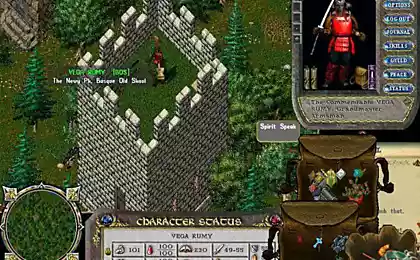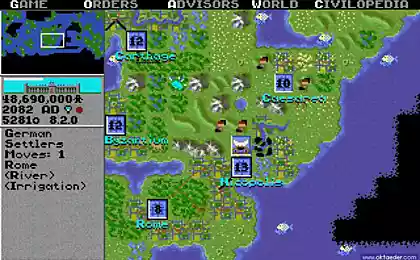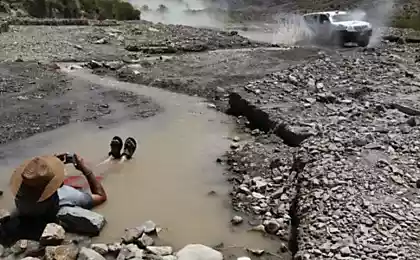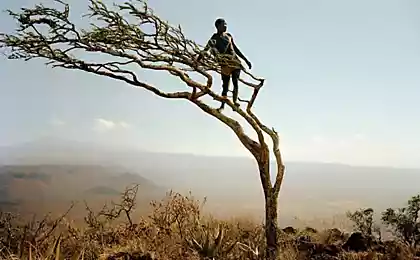423
I'll keep you if you keep. Do we save natural resources
Albert Einstein once said, "Nothing truly valuable can be achieved only on the basis of unselfish cooperation of most people." Alas, when it comes to enterprises to save the resources of the earth and protect the planet for future generations, the community of people is a lot of unconstructive.
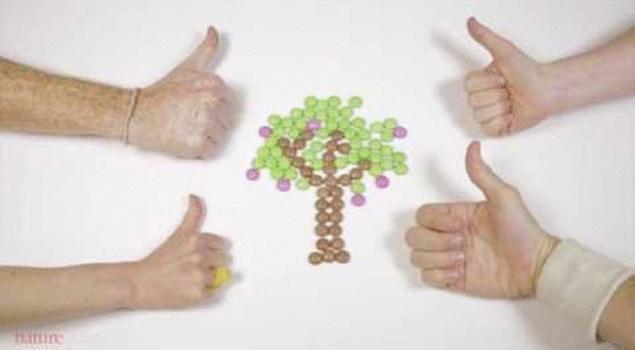
"There was a lot of work how do people cooperate with those they see every day — their colleagues and friends," — said in a written statement, Dr. Martin Nowak (Nowak Martin), Professor of mathematics and biology at Harvard University. "But the unresolved question is how people cooperate for the benefit of future generations. How to make altruistic decisions today that benefit people tomorrow?"
For those who worry that we will never be able to organize and be partners to protect our planet, provocative new research involving game theory, conducted by Novak and colleague at Yale University, gives a glimmer of hope.
For the study of 480 men and women alternated playing the "public good", where five players shared pool of resources between themselves. (In the video located below, illustrated by the candy explanation of how the game works).
Each player is allowed to collect a maximum of 20 "units" of the resource of 100 units. The players were told that if they're going to take all the resources, nothing will remain for those people who will be the next to play this game. They could only "get" up to half of the resources if they wanted to save resources for future players.
As played the game? The players run out of resources almost in every game. In most cases, four of the players collaborated and made decisions, conservation of resources, while one of the players took a large share.
According to the researchers, this suggests that the majority of people actually willing to cooperate, but they are willing to cooperate only if the other people will do the same — in fact, no one wants to be a "renegade".
"In a sense, it shows why the free market is unable to solve the problem with climate change," said Novak in a statement. "Even if you want to operate in the future, you can't do that, because there is a fear of being used at the present time."
The researchers then had to give 370 players to play the game, but this time they decided to create a poll, according to which it had to determine how many resources should be given to each player. They took the median of the votes and distributed the amount — and they found quite surprising.
"When we implemented this system, virtually every resource was saved," said Novak in a statement. "The amazing observation is that, while there is a minority of people who do not want to cooperate, most people vote altruistic. Didn't they vote to maximize their own advantage, and that's what gives the possibility of cooperation in favor of the future."
Source: eco-portal.kz

"There was a lot of work how do people cooperate with those they see every day — their colleagues and friends," — said in a written statement, Dr. Martin Nowak (Nowak Martin), Professor of mathematics and biology at Harvard University. "But the unresolved question is how people cooperate for the benefit of future generations. How to make altruistic decisions today that benefit people tomorrow?"
For those who worry that we will never be able to organize and be partners to protect our planet, provocative new research involving game theory, conducted by Novak and colleague at Yale University, gives a glimmer of hope.
For the study of 480 men and women alternated playing the "public good", where five players shared pool of resources between themselves. (In the video located below, illustrated by the candy explanation of how the game works).
Each player is allowed to collect a maximum of 20 "units" of the resource of 100 units. The players were told that if they're going to take all the resources, nothing will remain for those people who will be the next to play this game. They could only "get" up to half of the resources if they wanted to save resources for future players.
As played the game? The players run out of resources almost in every game. In most cases, four of the players collaborated and made decisions, conservation of resources, while one of the players took a large share.
According to the researchers, this suggests that the majority of people actually willing to cooperate, but they are willing to cooperate only if the other people will do the same — in fact, no one wants to be a "renegade".
"In a sense, it shows why the free market is unable to solve the problem with climate change," said Novak in a statement. "Even if you want to operate in the future, you can't do that, because there is a fear of being used at the present time."
The researchers then had to give 370 players to play the game, but this time they decided to create a poll, according to which it had to determine how many resources should be given to each player. They took the median of the votes and distributed the amount — and they found quite surprising.
"When we implemented this system, virtually every resource was saved," said Novak in a statement. "The amazing observation is that, while there is a minority of people who do not want to cooperate, most people vote altruistic. Didn't they vote to maximize their own advantage, and that's what gives the possibility of cooperation in favor of the future."
Source: eco-portal.kz
In Georgia discovered a rich tomb of the two chariots
Rhinos in Zimbabwe are rescued by a former special forces officer.





